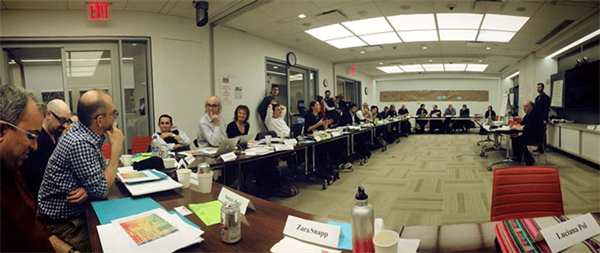The road to the UN General Assembly Special Session on Drugs in 2016
There is a clear sense that attempts to stifle debate on both the failings of international drug policy and the possibility of exploring alternative approaches will not succeed.
31 Jan 2015UN forums in recent years have witnessed more and more governments expressing their frustrations with the failing global war on drugs. This failure goes way beyond just the goals of drug control systems to reduce illicit drug production and use. The key driver of calls for change has been the catastrophic negative impacts of the war on drugs on public health, human rights, development and security. The combination of problems related to the violent illegal trade (which are fuelled by prohibition), militarised enforcement, and mass criminalisation and over incarceration have pushed the debate past a tipping point – governments and civil society groups alike have had enough, and are finally taking decisive action.

The intensity of drug market-related violence and insecurity in Latin America has been a critical factor. It has reached such a crisis point that in 2012 a group of heads of state – from Colombia, Mexico and Guatemala – called for the UN General Assembly to convene a Special Session as part of a wider collective call to “conduct deep reflection to analyse all available options, including regulatory or market measures, in order to establish a new paradigm that prevents the flow of resources to organized crime organizations.”
Special Sessions of the General Assembly are called to review and debate a specific issue – in this case the “world drugs problem”. The last UNGASS on drugs took place in 1998, and whilst it was also instigated by Mexico with a more forward-looking mandate, it was effectively derailed by more conservative drug-war advocates and culminated in a pointless restatement of existing structures and a commitment to create a “drug-free world” by 2008.
This absurdity looks unlikely to be repeated again. Whilst the need for consensus means that substantive reforms to the international legal framework are impossible at this stage, we can certainly expect a lot more than 1998. The same forces advocating for the status quo remain amongst both member states and UN agencies – in particular the UN Office on Drugs and Crime (the lead UN agency on illicit drugs), the International Narcotics Control Board (the body that oversees states’ compliance with the UN drug treaties), and the Commission on Narcotic Drugs (the historically conservative 53-member state body that is shaping the UNGASS agenda). However, drug-war dissenters are substantially stronger in number and political will this time around, and there is a clear sense that attempts to stifle debate on both the failings of international drug policy and the possibility of exploring alternative approaches will not succeed.
Doctors can lead the way to healthier drug policies – join IDHDP now.
Share this on: